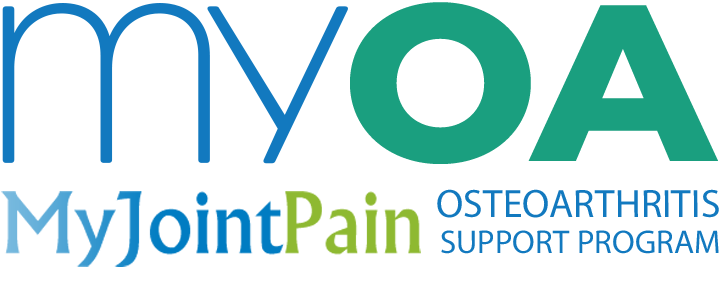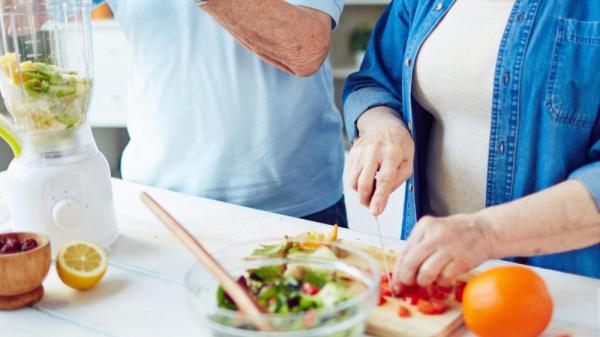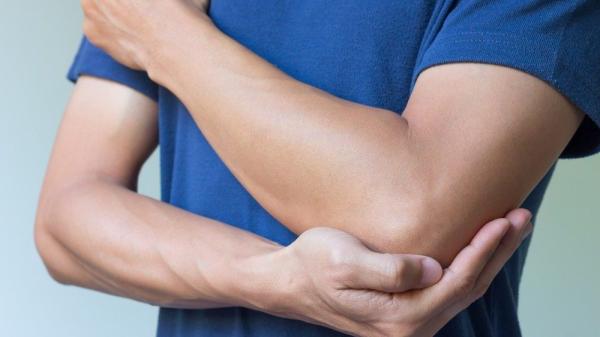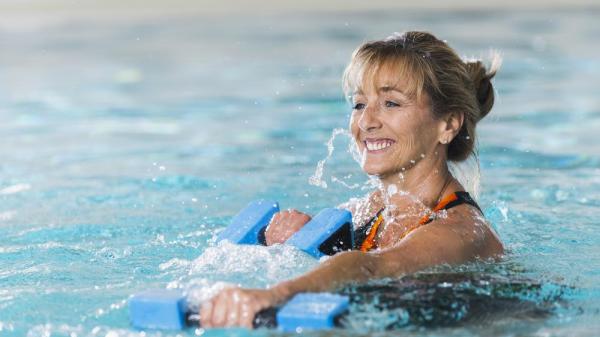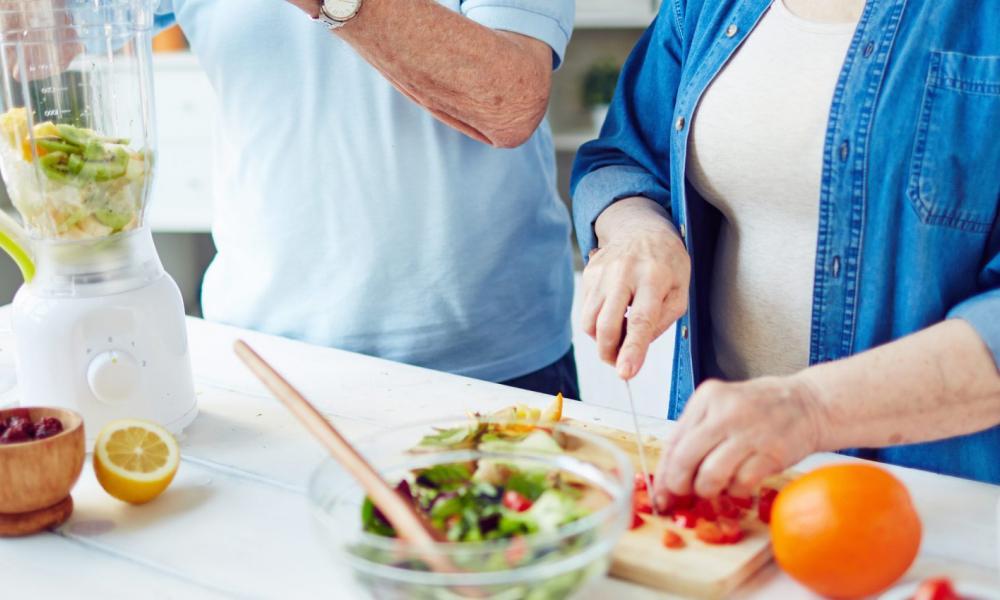
Weight Management and Osteoarthritis
Managing your weight is crucial in the care of osteoarthritis (OA), especially if it affects weight-bearing joints such as the knees, hips, back, ankles, or feet. Extra body weight can contribute to OA symptoms by placing additional stress on these joints and increasing inflammation throughout the body. Research shows that even modest weight loss (e.g., 5% of body weight) can significantly reduce joint pain, improve mobility, and slow disease progression. (1-3)
Understanding the Impact of Weight on OA
- Risk of OA: Overweight individuals are at a significantly higher risk of developing knee OA—four times higher for women and five times higher for men—compared to those with a normal weight. This risk decreases with weight loss.
- Joint Relief: For every kilogram of weight you lose, there is a fourfold reduction in the load placed on your knee joints, meaning less pain and strain on the joints most affected by OA.
Am I Overweight?
A common way to assess if you are overweight is by calculating your Body Mass Index (BMI):
- Normal weight: BMI less than 25
- Overweight: BMI 25 to 29.9
- Obese: BMI 30 or higher
How to Lose Weight for OA Management
The most effective and sustainable way to lose weight involves combining a healthy diet with regular physical activity. It's important to focus on long-term habits, rather than short-term fad diets, which may be ineffective or harmful.
Reducing Food Energy (calories)
To reduce weight, focus on consuming fewer calories and engaging in regular exercise. Here are some tips:
Cutting Down Fat:
- Reduce intake of saturated fats found in biscuits, full-fat dairy, and fried foods.
- Opt for healthier fats like monounsaturated (e.g., olive oil, nuts) and polyunsaturated fats (e.g., fish, sunflower oil).
- Grill instead of fry, choose lean cuts of meat, and incorporate more vegetables and whole grains.
Reducing Sugar Intake:
- Sugar provides empty calories without nutritional value. Cutting back 30g of sugar can save 470 kilojoules daily. Avoid sugary drinks and processed foods, and sweeten foods naturally with fruits.
Incorporating Fruits, Vegetables, and Whole Grains:
- These provide complex carbohydrates, vitamins, and antioxidants. Aim for at least five servings of fruit and vegetables each day to support both weight loss and overall health.
Limiting Alcohol:
- Alcohol contains hidden calories. Reducing your intake can help you achieve weight loss goals more quickly.
Exercise and Physical Activity
Exercise plays a vital role in OA management by improving joint flexibility, reducing stiffness, and aiding weight loss. (4)
There is no one size fits all approach to exercise for OA, it is often a process of trial and error to find the exercise that works best for your ability and lifestyle. (5) Everyone’s fitness level will be different, so start with activities that suit you. Many people with OA prefer low-impact exercises, but high impact exercise such as running can also be safe, if you have questions talk to an exercise physiologist or your physiotherapist.
Effective low-impact exercises include:
- Water-based exercises: Gentle on joints while providing resistance training.
- Strengthening exercises: Build muscle to support joints.
- Aerobic exercises: Walking, cycling, or swimming improve cardiovascular health and aid in weight control.
- Moderate activities: Gardening, dancing, or playing sports can also contribute to weight loss. Even small improvements in physical activity can make a big difference over time.
The Benefits of Weight Loss for OA
- Joint Pain Reduction: Losing just 5% of your body weight can reduce joint pain and improve function by 30%. (1)
- Quality of Life: Those who lose 10% of their body weight can experience a 50% improvement in pain and mobility, with additional benefits in reducing the need for joint replacement and lowering overall mortality. (6)
Support from Health Professionals
If you struggle with weight loss, you're not alone. Support from professionals like dietitians, exercise physiologists, and personal trainers can make a big difference. These experts can help tailor a weight management plan to your individual needs, offering guidance on both diet and exercise.
- Dietitians can help create a balanced eating plan and offer personalized advice.
- Exercise physiologists can design safe, effective exercise routines suited to your OA and weight loss goals.
To find a dietitian, contact the Dietitians Association of Australia or visit their "find a dietitian" service at www.daa.asn.au.
Does being Overweight Affect Osteoarthritis?
Yes, being overweight increases systemic inflammation and joint stress, particularly on the knees, hips, and lower back.(7) Losing weight can alleviate pain, improve mobility, and enhance your quality of life. If you're concerned about your weight, speak to your healthcare team for tailored advice and support.
Takeaway Message
Managing weight is an essential part of living well with OA. Even small changes to your diet and physical activity levels can have significant benefits. Start slowly, and with the help of your healthcare team, find sustainable ways to achieve and maintain a healthy weight.
For more information on healthy eating, visit the Australian Government’s Food for Health guidelines at www.nhmrc.gov.au/publications.
Websites
Australian Government’s National Physical Activity Guidelines are available at www.health.gov.au (look under the ‘For consumers’ section)
Eat for health- tips for losing weight healthily
https://www.eatforhealth.gov.au/eating-well/tips-eating-well/tips-losing-weight-healthily
Podcasts
The impact of weight loss on osteoarthritis
Does obesity cause knee replacements?
Can OA be prevented
Getting started with physical activity for osteoarthritis: insights from experts part 1
Exercising with knee and/or hip osteoarthritis with Prof Melanie Holden
https://shows.acast.com/joint-action/episodes/exercising-with-knee-andor-hip-osteoarthritis
The below references have been used to develop this fact sheet with the most up-to-date evidence available.
References:
- Salis Z, Gallego B, Nguyen TV, Sainsbury A. Association of Decrease in Body Mass Index With Reduced Incidence and Progression of the Structural Defects of Knee Osteoarthritis: A Prospective Multi-Cohort Study. Arthritis Rheumatol. 2023;75(4):533-43.
- Gray B, Gibbs A, Bowden JL, Eyles JP, Grace S, Bennell K, et al. Appraisal of quality and analysis of the similarities and differences between osteoarthritis Clinical Practice Guideline recommendations: A systematic review. Osteoarthritis and Cartilage. 2024.
- Gibbs AJ, Gray B, Wallis JA, Taylor NF, Kemp JL, Hunter DJ, et al. Recommendations for the management of hip and knee osteoarthritis: A systematic review of clinical practice guidelines. Osteoarthritis and cartilage. 2023;31(10):1280-92.
- Bull FC, Al-Ansari SS, Biddle S, Borodulin K, Buman MP, Cardon G, et al. World Health Organization 2020 guidelines on physical activity and sedentary behaviour. Br J Sports Med. 2020;54(24):1451-62.
- Goh SL, Persson MSM, Stocks J, Hou Y, Welton NJ, Lin J, et al. Relative Efficacy of Different Exercises for Pain, Function, Performance and Quality of Life in Knee and Hip Osteoarthritis: Systematic Review and Network Meta-Analysis. Sports Med. 2019;49(5):743-61.
- Muthuri SG, Hui M, Doherty M, Zhang W. What if we prevent obesity? Risk reduction in knee osteoarthritis estimated through a meta-analysis of observational studies. Arthritis Care Res (Hoboken). 2011;63(7):982-90.
- Messier SP, Mihalko SL, Legault C, Miller GD, Nicklas BJ, DeVita P, et al. Effects of intensive diet and exercise on knee joint loads, inflammation, and clinical outcomes among overweight and obese adults with knee osteoarthritis: the IDEA randomized clinical trial. Jama. 2013;310(12):1263-73.
